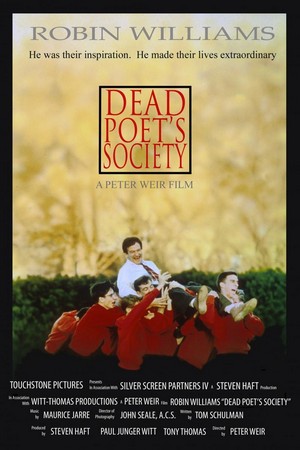
Dead Poets Society (1989)

Raiting: ![]() 8 /10
8 /10
Genre: Drama
Director: Peter Weir
Stars: Robin Williams, Ethan Hawke and Robert Sean Leonard
Country: United States
Release date: 2 June 1989
Length: 128 minutes


Raiting: ![]() 8 /10
8 /10
Genre: Drama
Director: Peter Weir
Stars: Robin Williams, Ethan Hawke and Robert Sean Leonard
Country: United States
Release date: 2 June 1989
Length: 128 minutes